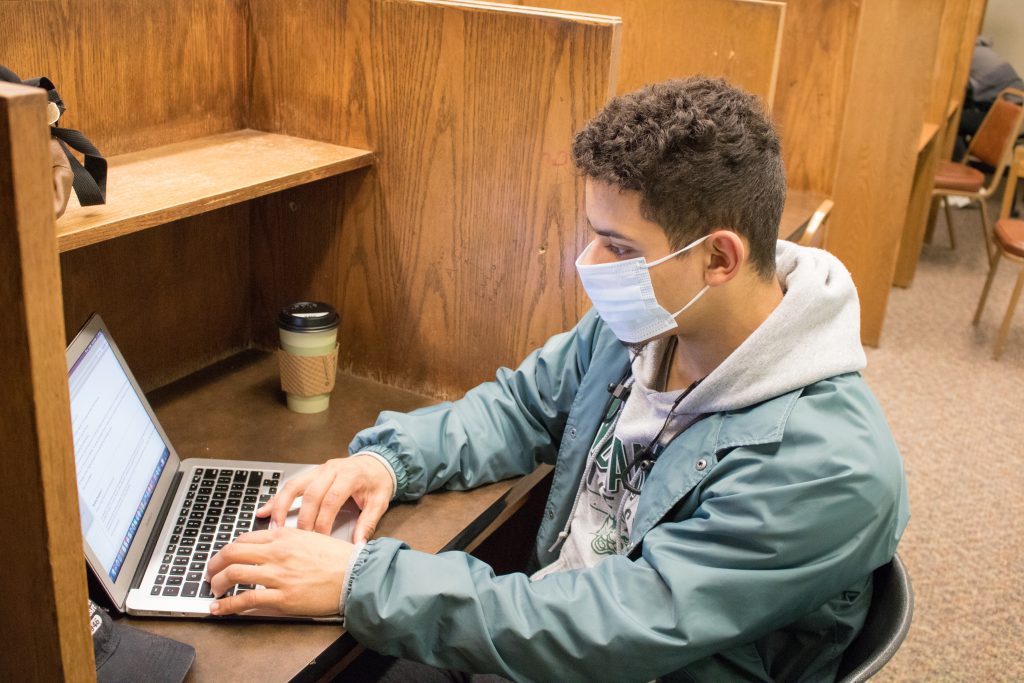
Multiple cases of the flu have recently hit campus, according to a Dateline announcement from Feb. 8. However, the illness is seeing fewer victims than usual, renewing discussions on the importance of preventative measures and resources available for students.
According to Dr. Richard Moose, medical director of Decker Student Health Services Center at Binghamton University, the influenza typically has outbreaks around this time of the year and it is a common practice to alert campus about the cases. But this year, there are fewer people sick than usual.
“Every year when we have confirmed cases, it has been the practice of previous medical directors to let the campus know it has arrived on campus,” Moose wrote in an email. “We are experiencing fewer cases than last year.”
Throughout the year, the center has been raising awareness on the flu and how to prevent it. Working closely with Health Promotion and Prevention Services, Decker Student Health Services Center has been offering free flu shots and cold and influenza kits to students on or off campus. Decker Student Health Services Center has also spearheaded a campus-wide push to get students, faculty and staff vaccinated against the illness. According to Moose, this semester is the first that Decker Student Health Services Center has run out of its entire supply of flu vaccine shots.
“To the best of my knowledge, this is the first semester we have used our entire supply of 1,500 vaccines before the start of the spring semester,” Moose wrote. “We are ordering more on an as-needed basis.”
Although the flu vaccine shots are on back order, Decker is pushing other preventative measures, including the use of alcohol-based wipes and hand cleansers, disposable tissues and frequent hand-washing. James Dysart, a sophomore majoring in history, said he’s been taking steps to protect himself from the flu, but was unaware of the flu-related services that Decker Student Health Services Center is providing.
“I didn’t know if Decker [Student Health Services Center] did anything for flu season, but the cold and flu kits are a great idea,” Dysart said. “However, I think they need to make that more aware.”
Most people catch the flu by breathing in water droplets from those who are sick when they cough, sneeze or speak. Additionally, Moose wrote that people can become infected by touching surfaces with the virus on it and then touching their mouth, nose or eyes, which is why sanitizing one’s hands and surfaces is important.
Symptoms of the flu include fever, chills, cough, sore throat, runny or stuffy nose, body aches, fatigue and headaches. According to Moose, students who suspect they have the flu should drink lots of fluids, get sleep, take medications like acetaminophen and ibuprofen to diminish pain, lessen fever and visit Decker Student Health Services Center to be diagnosed.
“All registered students are eligible to be seen at health services if they feel ill,” Moose wrote. “It doesn’t cost them anything and insurance isn’t required.”
Chris Bacalla, an undeclared freshman, said he doesn’t know anyone formally diagnosed with the flu, but has noticed his friends going to checkups for flu-like symptoms.
“I have noticed a lot of people in my social circle go to Decker [Student Health Services Center] or [United Health Services] recently,” Bacalla said.


